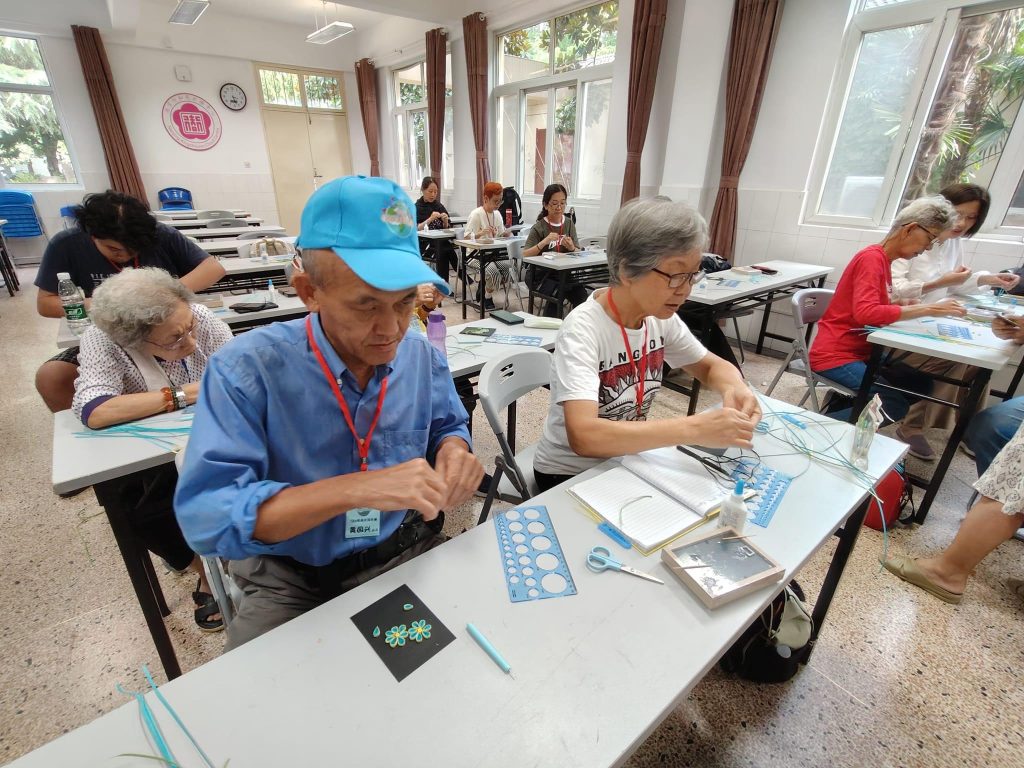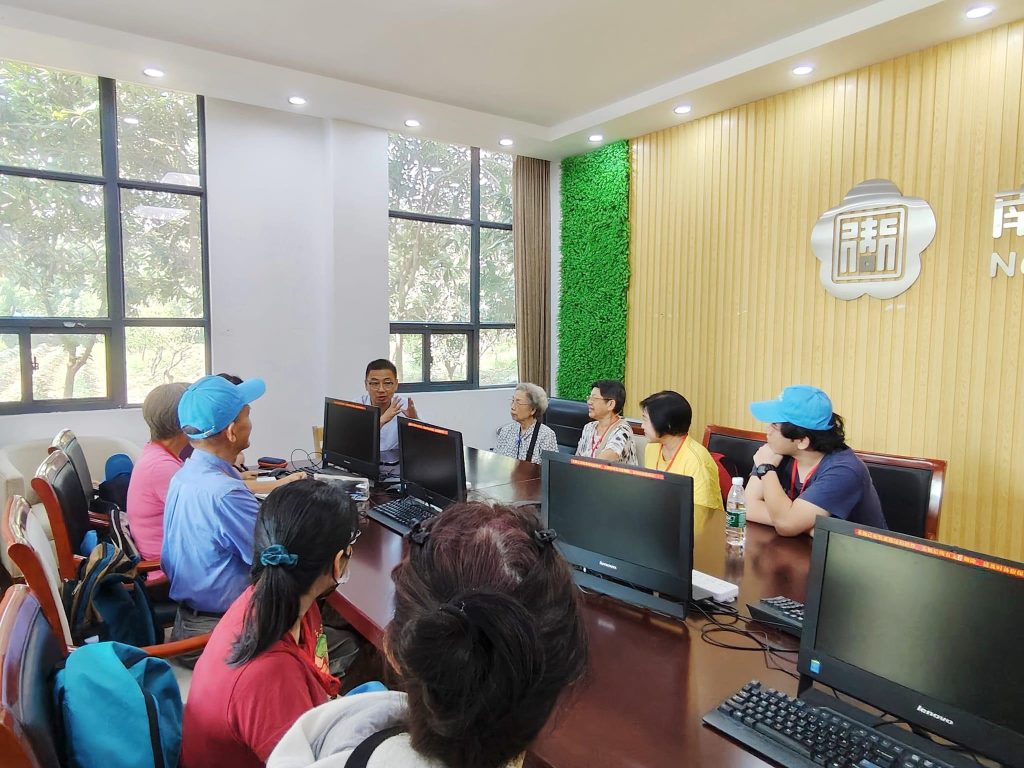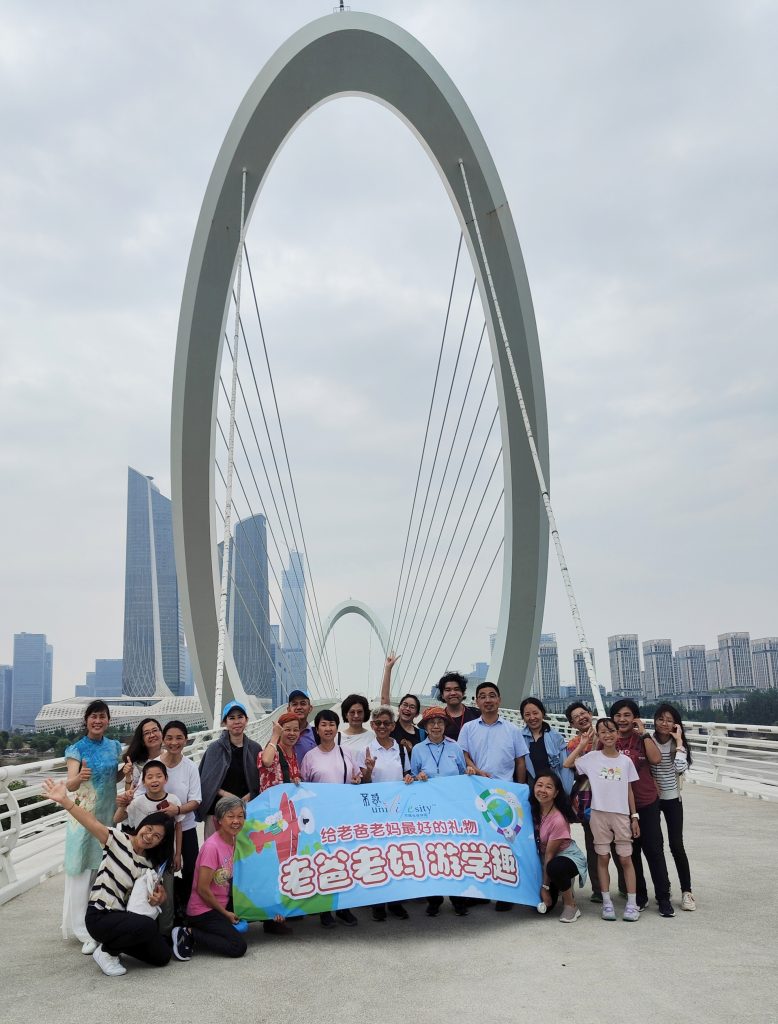Forget the stereotype that seniors prefer a slow-paced, sedentary and uneventful life. Lilian Goh, founder and CEO of Buhuo Unilifesity, a non-profit that teaches seniors new skills, has discovered otherwise over the past five years.
“People always think that young people are the go-getters filled with energy and passion, but from what we learned, once the doors open for a senior, they are more enthusiastic than the younger ones,” the 60-year-old said.
Starting in 2019 with just 10 students, including themselves, Lilian and her friends launched free online drawing classes for seniors. Today, these classes, held daily except Sundays, attract an average of 100 seniors.
The idea for Buhuo Unilifesity arose when Lilian and her friend noticed a lack of programs for adults and their aging parents, while there were aplenty for parents and young children.

“We always ask, if parents are willing to send their children to tuition, will they send their senior parents for tuition too?” she questioned.
Lilian’s idea was straightforward, yet she recognized that many still find it difficult to embrace the concept of a vibrant life after retirement, as accepting the reality of aging and having a fulfilling post-retirement life remains a challenge for some.
“In the past, life expectancy was shorter, around 50 years. There’s even a Chinese saying that living till 70 is rare. But today, people retire at 60 and live another 10 to 15 years!” Lilian added.
The name Buhuo Unilifesity is inspired by a saying from The Analects of Confucius: “At forty, men should have no doubts” (四十而不惑), which meant that by age forty, a person should have reached a level of maturity and understanding that brings clarity and confidence, free from confusion or uncertainty.
Lilian believes that with today’s longer life expectancy, there’s a third phase of life after retirement, beyond the pursuit of material items.
“In our first phase of life – childhood, life is planned out for us. In the second phase – adulthood, we pursue careers and start families. Now, we have the privilege of a third phase, a concept society still struggles to grasp due to traditional norms.

“Parents and grandparents still think they need to sacrifice their well-being for the family’s success, channeling all resources to young grandchildren,” she said, referring to the Chinese community who places an emphasis on education.
While holding on to these cultural norms, Lilian also believes that lifelong learning among grandparents not only sets an example for younger generations but also strengthens family relationships.
“A retired senior shouldn’t spend their days sitting at home, boiling soup, waiting for their children and grandchildren, and discussing TV dramas. What interesting conversations can they have with their adult children then?
“By picking up new skills, seniors can share their learning experiences and breakthroughs with their children, especially at an age when they never expected to learn something entirely new,” said Lilian.
Since their initial drawing classes, Unilifesity has expanded to health and wellness talks, financial seminars, pilates, yoga, chi gong, Chinese massage (tui na 推拿), Hakka singing, and other arts and crafts. As the pandemic eased, seniors began requesting in-person classes.
Last month, Unilifesity organized its second international study tour to Nanjing, China, and held an outdoor sketching workshop at Petaling Street.

“You’d be surprised how dedicated seniors can be, willing to step out of the house, buy a flight ticket, book hotels, and meet friends they’ve never seen in person,” said Lilian, noting that there are students from Sabah, Sarawak, and Singapore.
With the government’s recent focus on the silver economy to support active and healthy aging for the growing elderly population, Unilifesity’s role is more crucial than ever, tapping into a global trend.
“We learned from Taiwan, where senior policies have been in place for years. Even with government policies, grassroots organizations like ours are essential because we understand what seniors want,” said the entrepreneur.
Despite being a senior herself, one might assume Lilian is retired and enjoying the classes organized by Unilifesity. In reality, Lilian continues to run her machinery company full-time while also managing Unilifesity, embodying her belief that there is no “right time” for engaging in social work.
“People often say they’ll wait until they have enough money to start giving back, but if we keep waiting, a lifetime will pass, and nothing will be achieved. We do what we can to the best of our ability, and anyone, regardless of age, can make a difference—just like our teachers,” Lilian explained. By Christine Cheah






